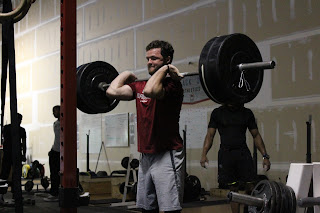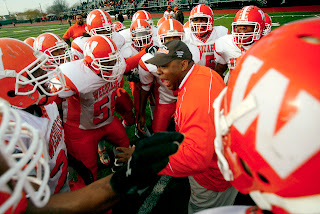LSU Strength Coach Speaks on Youth Training


1. Hi Coach Moffitt. It’s great to have you hear at Fast Youth Athlete. Could you tell us about background and how you became interested in physical training? My older brothers all lifted and played sports so my dad built us a gym in the garage. He could weld so made us a bench, squat rack, chin-up bar and dip station. There was always someone down there whether we were home or not. After I left home for college I still had friends who lifted in the basement while visiting with my parents. Another reason and I’m sure that it’s like this for almost everyone, I played football and we of course did it for that reason as well. When I got to college, my coach, Mr. Jack Williamson instilled in me the work ethic to someday want to do it to make a living.
2. When do you believe is the optimal time to prepare a young pop warner player for physical activity? I often tell parents that their young man does not have to lift weights, but he can increase his chances of staying injury free by strengthening his body through bodyweight movements. I personally believe that you can start as early as you want teaching technique and developing an appreciation for strength and conditioning. Laird Hamilton, a professional surfer and phenomenal athlete stated in his book, “that the size of an athlete’s work capacity is developed when they are young.” What parents and coaches must understand that you must develop fundamental exercise technique, work capacity and an appreciation for physical activity before you focus on strength and power development.
3. I see a lot of coaches that are still confused on how to properly warm-up their football team. What would be your advice when training young athletes? Every place that I have ever coached begins football practice with an offensive, defensive, and special team’s walk-through of 10 to 15 minutes. I like this because it gets the team thinking about what they have to do and it gently warms up the working muscles. We then follow that period with 5 minutes of light jogging, dynamic flexibility drills and exercises to complete the warm-up process. After this we do a short 5 minute team stretch with quick calisthenics for moral and enthusiasm. We are now 20 to 25 minutes into practice and no one has come close to any contact or anything. Defensively we now go to a 5 minute pursuit drill and offensively our team runs 5 minutes of perfect plays, both groups going against air. After completing our team goes to individual drills and practice will now consist of contact/hitting other players.
4. What are the most common mistakes that people make when training youth athletes? The most common mistake that I see is related to overuse and or trying to do too much too soon. Sportsmen, young and old, require a certain amount of gradualness when planning work and the perfection of sporting skill.
5. What are basic principles someone should use to make sure their youth athlete is progressing? Be patient! I’m not really into testing young athletes due to the risk of injury. Sports are supposed to be fun if you’re not having fun “playing” sports then you’re not going to want to do it very often. Let’s take my son Clay for instance, when he was young, 8 – 9, he was big and didn’t run well and coaches never gave him a chance in any sport. He was the first kid that was put at catcher, guard and even sometimes sat on the bench and watched others play because, “he wasn’t good enough for this level.” I actually had coaches and parents tell me that Clay was the type of kid that wouldn’t make it in athletes and that he should probably try something different. I would always tell him to not worry, keep working hard and someday he would pass all those kids up. Now Clay is 15 and is 6’1” 200 and runs the 40 in 4.90 and can dunk a basketball! He was told in 10 yr baseball that he would never pitch and he was clocked at 90 this summer in a 60/90 tournament! He is absolutely the best “big athlete” in East Baton Rouge parish today. Now where would we be today if we worried about what he was able to accomplish when he was 10? I will attach some photos and videos of him for you to see.
6. Coach, we all know that you have trained some championship teams at LSU. What are the mental characteristics that you immediately recognized in some of your best athletes? Do you feel mental toughness can be trained? A successful athlete at any level must first enjoy what he’s doing. If they don’t like it and are not having fun, they will never try hard enough in order to be successful. A kid must also be very smart and have some “natural instincts” as well. Next I think that speed, change of direction and power is meaningless if they are not smooth and considered a good athlete. As far a mental toughness is concerned I think that it’s important to have but impossible to reinforce if parents don’t teach the same principle that the coaches are trying to instill. We have chores in our house that our boys do and some of the easiest tasks are always the hardest for them to do!
7. Many parents are over zealous in training young athletes like college football players. What do you think is optimal for training young athletes? How often, etc…? It all depends on how much they enjoy it. I have 3 boys and one of them could lift, run and practice 5 or 6 days of the week and the other 2 are burnt out after 1 session. Our boys are in a TOUGH academic school so they are limited when it comes to practice time. During school I would say from grade 5 to 6 probably 3 days a week would be max with one day on the weekend. For grades 9 – 12 I would imagine 5 or 6 days a week. Clay’s freshman team at Catholic High has 62 boys and they practice Monday, play on Tuesday, run and watch film on Wednesday, and practice Thursday, Friday and Saturday. He gets home every night except for Wednesday around 6:00 and spends the rest of the evening eating and studying. Our 6th grader plays for his school team and they practice Mon, Tuesday, and Thursday evening with an occasional scrimmage on Saturday morning early in the year. His games are on Sunday. My other son doesn’t play sports; he’s an artist and a musician.
8. What are your thoughts on parents that have players play some sport year round? Do you feel they need a rest? I favor the long-term approach, but many parents have their kids in an activity every month of the year. Again, this depends on the child and his academics. My oldest son play’s every sport that he can consisting of track (shot and discus), swimming (undefeated for 5 yrs in freestyle and butterfly, triathlon (was ranked #1 nationally when he was 12-13), basketball, USSSA baseball that can begin in November and go to July, and even competitive weight lifting and still begs for more! My other 2 boys have all played, football, baseball and basketball. The most important thing in our household is that we have always stressed fun over results and we have NEVER made them do something that they were not interested in doing. We have never focused our children on being the best, we always stressed participation in sports because competition is fun and it’s good for you.
9. What are pieces that must be present in every training program? How do you design your program? I look at the demands of the sport, the level of fitness that my athletes have and what the goals of the coach are. Of course everyone’s goal is to win but each team is different and there is always something that needs to be improved upon long before you can think of wins and losses.
10. What is the best way to build the stop and go change of direction ability that every youth athlete wants? First they must have a strong core, balance and body control and then and only then, strong legs. You can’t stop and change direction without these three components. We teach a series of “movement patterns” here to teach our guys to decelerate and accelerate from different positions that I think that helps but you have to be strong and powerful to do it with the best!
11. Thanks for doing this interview and where can we learn more about you. What projects are you currently working on? We have a website, www.lsupower.net that we are currently upgrading and I’m personally writing a book about my survivorship with prostate cancer.



Comments
Post a Comment